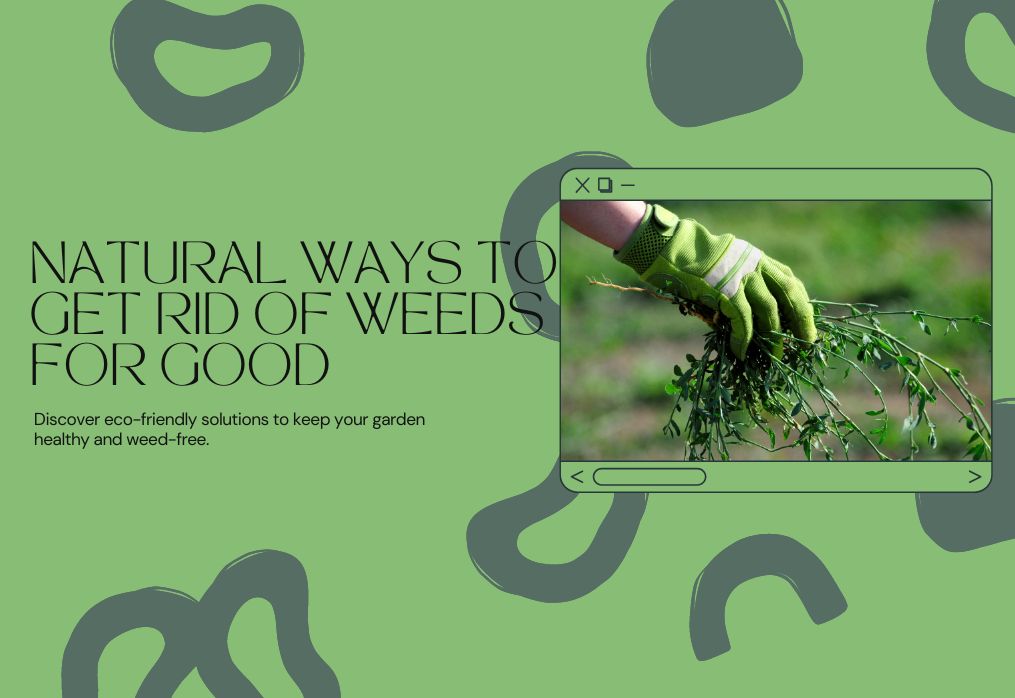Taking Back Your Garden: Natural Ways to Get Rid of Weeds for Good
Taking Back Your Garden: Natural Ways to Get Rid of Weeds for Good
I understand your frustration! Weeds appear to have an incredible capacity to spring up where you least expect them, and getting rid of them permanently might feel like an ongoing fight. But worry not, fellow growers! There are various practical, eco-friendly strategies to tackle these uninvited intruders and maintain your area weed-free—organically!
Address the root cause:
Before getting into particular approaches, remember that prevention is vital. Understanding why weeds grow in your environment might help you prevent future outbreaks. Consider:
Soil health: Poor soil fertility fosters weeds. Amend your soil with compost or organic matter to produce a healthy habitat for desirable plants, making it tougher for weeds to compete.
Lighting: Weeds adore sunshine. Strategically place taller, desirable plants to shade weed-prone regions.
Watering: Overwatering produces a sanctuary for weeds. Water thoroughly and less frequently to foster deeper root growth in your targeted plants, making them more durable.
Natural Weed Warriors Taking Back Your Garden: Natural Ways to Get Rid of Weeds for Good
Now, let’s unleash the artillery! Here are some excellent eco-friendly techniques to combat current weeds:
Mulch: Cover bare soil with a thick layer of organic mulch like crushed bark, leaves, or straw. This filters sunlight, lowers weed germination, and keeps moisture for your selected plants.
Hand-pulling: the conventional way! It’s time-consuming yet effective, especially for young weeds. Pull them out by the roots to prevent regrowth. Boiling water: Blast juvenile weeds with a rapid blast of hot water (be cautious not to injure desired plants). This basically “cooks” them from the inside out.
Vinegar spray: Mix equal parts white vinegar and water in a spray container. This acidic solution targets delicate weeds, but be aware of neighboring desired plants as it might be non-selective.
Homemade soap spray: For harder weeds (Soil Treatment Services), combine 2 teaspoons of dish soap with a liter of water in a spray bottle. The soap damages the weed’s protective waxy layer, allowing the solution to enter and kill it.
Smothering: Cover big weed areas with thick layers of newspaper, cardboard, or cloth. Deprived of sunlight, the weeds will ultimately die and decay, improving your soil.
Cornmeal gluten: This organic weed preventer works by blocking seed germination. Sprinkle it around preferred plants to create a weed-free zone.
Remember:
Timing is key: For most approaches, apply them on a bright day while weeds are actively developing. Repeat as needed: Most treatments require repeated application, especially when dealing with tenacious weeds.
Observe and adapt: Different strategies work better for different weed species and settings. Experiment and determine what works best for your garden.
Be patient: Eliminating weeds permanently takes time and constant work. But with these eco-friendly approaches, you can grow a healthy garden without damaging the earth. By treating the fundamental causes and deploying these natural soldiers, you can wave goodbye to weeds for good (well, nearly!) and enjoy a healthy, vibrant garden that respects the environment.You can also read about Lawn Care Mistakes Everyone Makes (and How to Fix Them!)
Summary:
- Emphasizes the pain of persistent weeds and the worry of harmful chemicals.
- Advocates for natural solutions like proper mulching and strategic planting.
- Advocates for manual removal of weeds to avoid their return.
- Uses vinegar as a natural herbicide effective on young weeds.
- Smothers weeds with newspapers and mulch to block sunlight and nutrients.
- Uses boiling water blast for small weed patches.
- Encourages insects and birds to prey on weed seeds and plants.
- Plants cover crops to suppress weeds and improve soil.
- Provides bonus tips on identifying common bugs and being patient and consistent.
- Encourages celebrating wins and enjoying a weed-free, healthy garden.
Last Updated on 4 weeks ago by Anjali Mehra Ph.D. in Horticulture (Punjab Agricultural University)
- Best Lawn Grass for Cold Climate in Kashmir - March 1, 2026
- Lawn Grass Lifespan in India – Which Grass Lasts Longest? - February 23, 2026
- Can Lawn Grass Grow Without Direct Sunlight? (2026 Expert Guide) - February 12, 2026
